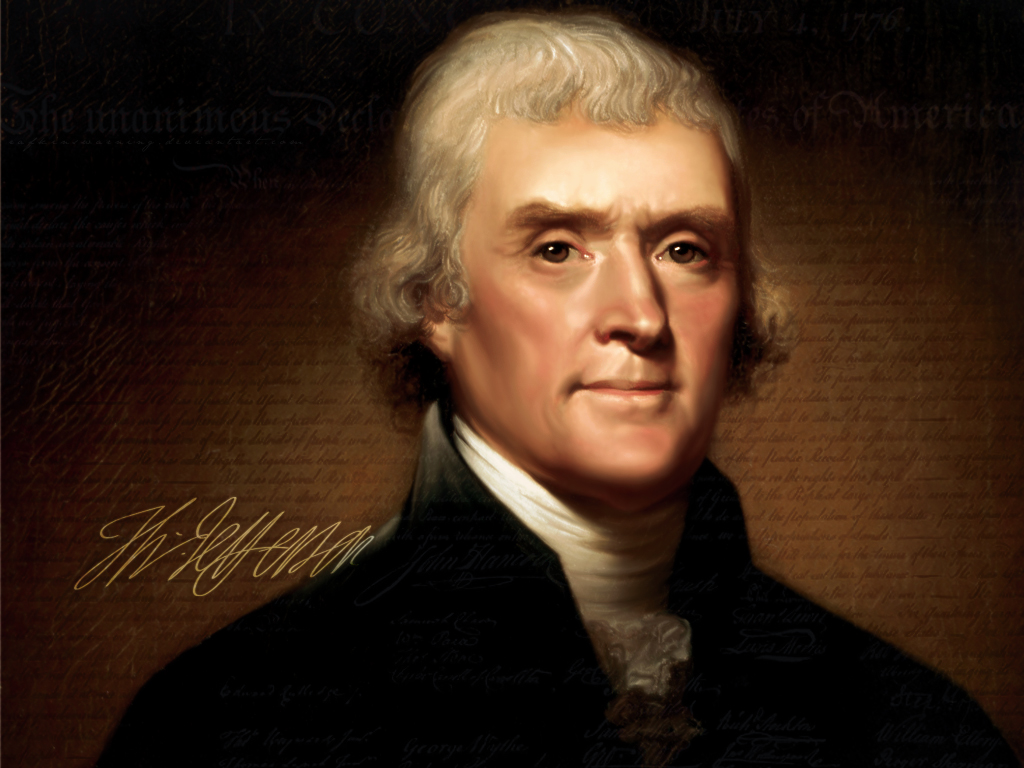
Description: Thomas Jefferson
Image copyright: http://www.bing.com/images/search?q=pictures+of+thomas+jefferson&view=detail&id=C1B0D0F249F3DADADE8C3CCBC0DA65F07F95DE58&first=1
Thomas Jefferson was elected the 3rd president of the United States of America in 1801 and was in office for 8 years. In his first term as president, Jefferson authorized the Louisiana Purchase from Napoleon in 1803, which doubled the size of the United States. He also appointed Meriwether Lewis and William Clark to explore the Louisiana Territory and beyond. This exploration lasted from 1804-1806, and is now known as the Louis and Clark Expedition. He also eliminated the tax of whiskey but still reduced the national debt. In his second term he signed into law the Act Prohibiting the Importation of Slaves.
When he left office in 1809, he retired to Monticello to ponder his plans for the University of Virginia. At the age of 76, in 1819 he founded the University of Virginia and it opened in 1825. His collection of books started a library called the “Library of Congress”. Thomas Jefferson died July 4, 1829 on Independence Day, which was the 50th anniversary of the Declaration of Independence. Despite his rich family and his personal successes, when he died he was in debt. He had a quiet funeral, which he requested, and was buried in the Monticello Graveyard.
